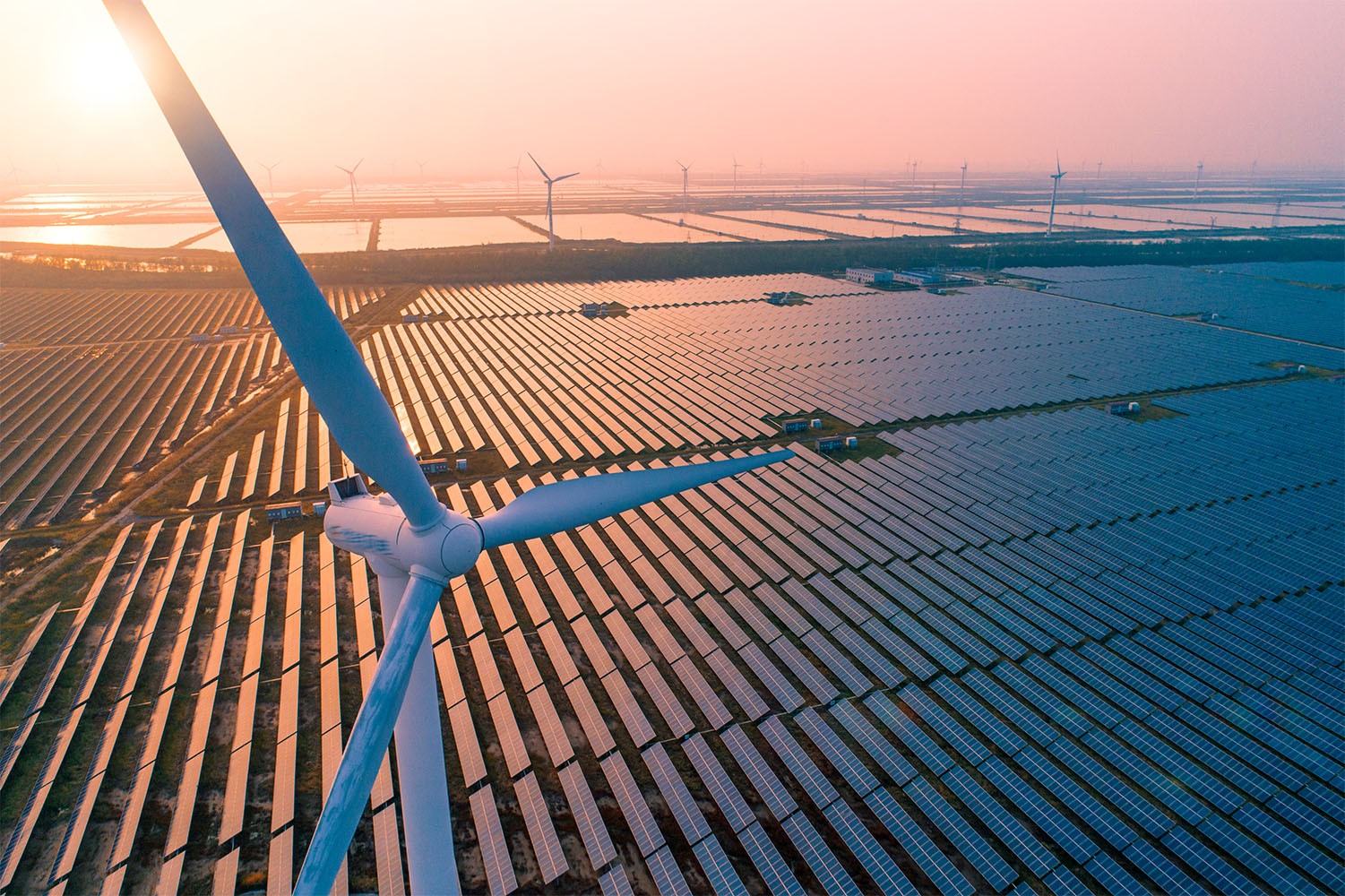The Energy Transition | Ofgem introduces half-hourly settlement, a new emissions reduction target for the UK, and a spotlight on green hydrogen
Published on 23rd April 2021
This week we look at Ofgem's introduction of half-hourly settlement in the retail electricity market, the UK government's new commitment to reduce emissions by 78% by 2035, some recently announced plans to utilise green hydrogen and more.

Ofgem to introduce half-hourly settlement in retail electricity market
Ofgem has confirmed its decision to proceed with its plans to reform electricity settlement by rolling out half-hourly settlement across the retail electricity market in the UK. The change will require data from smart meters, which accurately record the amount of energy consumed or exported, to be recorded and submitted to energy suppliers in half hour increments. The increased accuracy offered by the half-hourly settlement will allow suppliers to offer new tariffs and products, which in turn will encourage more flexible energy use by consumers. While suppliers can already elect to settle consumers on a half-hourly basis, Ofgem will in future require that suppliers do so in order to maximise consumer benefit.
The transition is expected to be completed by October 2025, and Ofgem's analysis states that the change will save consumers between £1.6bn and £4.5bn by 2045. Anna Rossington, interim director of retail at Ofgem, said that "[t]hese reforms are complex, but we know there's a huge appetite across the sector to make these vital changes a success".
UK government commits to new 78% emissions reduction by 2035
The government has this week announced that it will set into law a climate change target that would see the UK reduce emissions by 78% by 2035 when compared to 1990 levels. This target is ambitious – particularly when compared against the government's previous target of an 80% reduction in emissions by 2050, which was replaced in 2019 by the commitment to reach net-zero by 2050. Significantly, this new commitment will include the UK's share of international aviation and shipping emissions, making this the first Carbon Budget to incorporate these categories of emissions.
The government hopes that by setting such an ambitious target, other countries will be persuaded to follow the UK's example. This was made clear by Prime Minister Boris Johnson, who said "we want to see world leaders follow our lead and match our ambition in the run up to the crucial climate summit COP26, as we will only build back greener and protect our planet if we come together to take action".
Spotlight on hydrogen
- Octopus Energy Group has revealed plans to expand into the green hydrogen sector with the launch of a new company, Octopus Hydrogen, in autumn 2021. Octopus Hydrogen will provide locally distributed "green hydrogen as a service" for heavy goods transportation, energy storage, industrial applications and aviation. Together with its acquisition of Octopus Renewables earlier in the year, this latest announcement demonstrates the Group's intentions to diversify its portfolio and support the transition to a green economy.
- In other hydrogen related news, AFC Energy and the technology company ABB have announced a strategic investment and development agreement to use hydrogen to fuel data centres. Under the agreement, the companies will test and design fuel cell systems, before incorporating them into a turnkey power solution for data centre operators. While this is not the first time that hydrogen fuel cells will be used to power data centres, this partnership will aim to demonstrate the commercial viability of the technology.
For more information on the role of hydrogen in a decarbonised energy system, see our roundtable discussion on this topic here.
Nest chooses GLIL infrastructure and CBRE Caledon for £3bn infra equity mandate
Nest, a UK pensions manager, has chosen GLIL infrastructure and CBRE Caledon to invest approximately £3 billion on its behalf over the next 10 years. After the release of the full mandate, infrastructure will constitute roughly 5% of Nest's portfolio.
Caledon is set receive the majority of the mandate amounting to £400 million from the initial pot, and will invest the capital predominantly in international developed markets, with a focus on assets including: electric and water utilities, district heating, rolling stock, public transit, roads, ports, hydrogen generation, data centres, towers, fibre and renewables. GLIL will invest via its open-ended fund, and mainly into the UK market.
Electric Vehicle (EV) – round up of latest announcements
- EO Charging has agreed to supply Amazon with chargers to facilitate the electrification of the tech giant's delivery fleet. EO Charging's multi-million pound contract with Amazon is the latest example of the EV charger developer's commercial success, having also signed a deal with Octopus Electric Vehicles last year to develop the EO Mini Smart Home.
- UK Power Networks (UKPN) has discovered that more than 500 EV chargers could be connected to one electrical substation by utilising cutting-edge technology, as an alternative to building new substations or cables. This is a result of an AI-simulation trial that successfully tested Active Response Software on a substation in Tooting, South London. The AI-trial was able to automatically transfer electrical capacity around the network to safely accommodate more low carbon technologies like EVs. This solution could release capacity for 568 additional EV chargers in Tooting, as well as an additional 1,313 across the East and South East of England.


